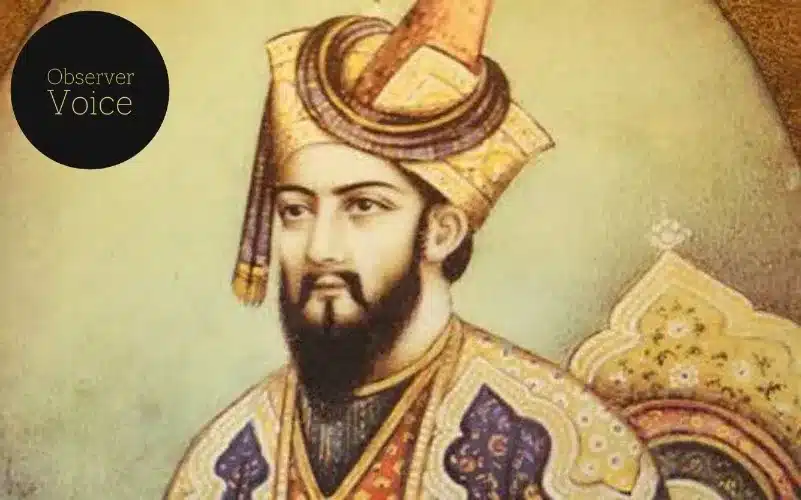Babur: The Founder of the Mughal Empire

Babur (14 February 1483 – 26 December 1530), was a soldier of distinction, a poet, a diarist, a statesman, a military adventurer, and the founder of the Mughal Empire on the Indian subcontinent. He also got the posthumous name Firdaws Makani (‘Dwelling in Paradise’).
Life and Mughal Empire
Babur was born on 14 February 1483, in Uzbekistan. He was a very devout Muslim. He was a descendant of Timur, the famous Mongol warrior. Upon the death of his father in 1494, Babur inherited Fergana’s throne at age 11. Babur captured Samarkand after months of siege in 1497. Babur lost Fergana to his enemies by pulling his army out of Fergana. Babur’s rival took over Samarkand when he returned to Fergana. Babur was clearly a conqueror.
He sieged Samarkand again in 1500 but couldn’t take it. Meanwhile, Fergana fell again. After losing his city, He marched to Kabul, in modern-day Afghanistan, and captured it in 1504. He soon became the last Timurid to rule the territory and gained the title of Padishah of the Timurid Empire and prestige over his family. Once again, he tried to take Samarkand but failed.
He couldn’t expand his power in Central Asia, so he turned to northern India. He used these Middle Eastern technologies cleverly, armed with gunpowder and artillery. He marched to Lahore, a city ruled by the Sultanate of Delhi, in 1524. For two days, He burned the city after defeating the sultan’s army.
He fought the First Battle of Panipat in 1526. Delhi’s forces had elephants, but He used artillery to panic them. Babur occupied Agra and Delhi in 1526 after killing the last ruler of the Sultanate of Delhi. History marks this point as the beginning of the Mughal Empire. The Mughal Empire is founded by Babur in this way.
First Mughal Emperor Babur’s reign was brief and dominated by military campaigns. Babur was a restless conqueror who didn’t take the time to manage his empire. That’s probably why his son Humayun rebelled (but came back to power again).
During his reign as emperor, He continued the Delhi Sultanate’s violent religious policies. The military attacked Hindus and Sikhs. Despite conquering Lahore, Delhi, and Agra, Babur didn’t rest. He was constantly on the campaign as Mughal Emperor, fighting the Rajput Confederation, which was an alliance of Hindu nobles against Islam in India. Punjab was under his rule by 1527 and 1528 after he defeated them. He died on 26 December 1530, in New Delhi, India. The tomb of Babur is located in Kabul in a vast park known as the Garden of Babur.
Read More: 28 December: Remembering Thanpuying Puangroi Apaiwong on her Birth Anniversary
Observer Voice is the one stop site for National, International news, Sports, Editor’s Choice, Art/culture contents, Quotes and much more. We also cover historical contents. Historical contents includes World History, Indian History, and what happened today. The website also covers Entertainment across the India and World.

